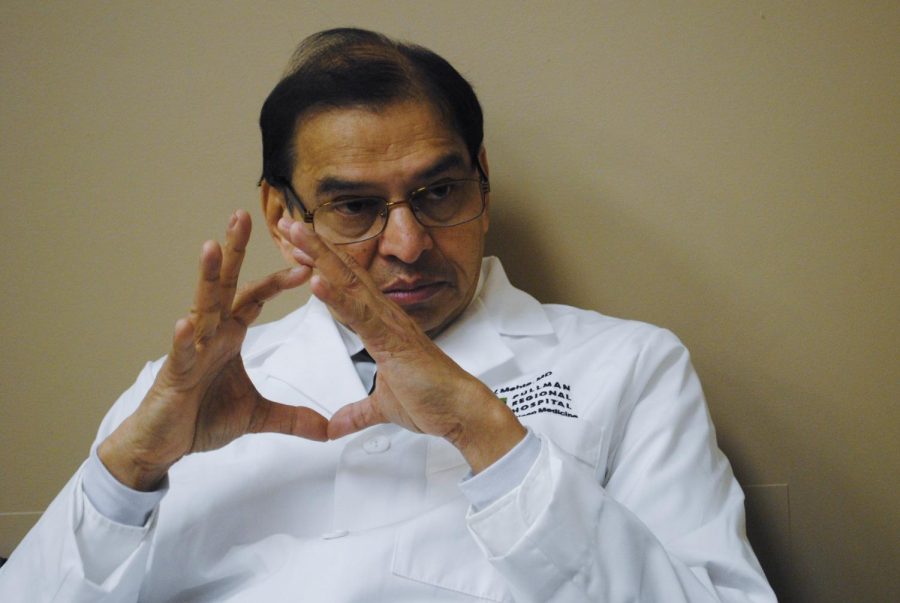Clinic opens to help with sleep disorders
Hospital uses studies to monitor body channels, determine sleep disorders
ALYSSA STANFIELD | THE DAILY EVERGREEN
“We are now open,” says Dr. Vinod Mehta, of Palouse Pulmonology and Sleep Medicine, on Wednesday at the Pullman Regional Hospital Clinic. “Anyone who has problems with sleep needs to see a sleep physician.”
January 17, 2019
This story has been updated to reflect the correct phone number for the clinic is (509)338-6000.
Palouse Pulmonology and Sleep Medicine opened to patients this week as part of the Pullman Regional Hospital Clinic Network.
Dr. Vinod Mehta is board certified in internal and sleep medicine. His medical interests include bronchoscopy, a test to examine airways, as well as sleep studies.
“Sleep has to be looked at as a battery,” Mehta said. “After your battery runs down you need to recharge it. Sleep gives you rejuvenation of the whole body.”
Mehta said approximately 70 million people in America have problems with sleep disorders, a majority of which are chronic. Poor sleep directly affects daytime functioning including focus at work or school, he said.
“Sleep deprivation can lead to morbidity and mortality,” Mehta said, “and cause other side-affects or cardiovascular problems in the future.”
He said the most common sleep disorder is sleep apnea, a serious disorder
that occurs when a person’s breathing starts and stops during sleep.
Most famously, sleep apnea was listed as one of the factors in the death of football player Reggie White at the age of 43, Mehta said.
To find underlying sleep problems, such as sleep apnea, the clinic uses sleep studies where they monitor 21 different channels in the body, he said. These include brain waves, eye movements, leg movements and muscle functions in the jaw, chest wall and abdominal muscles.
In order to get a better night sleep Mehta recommends making adjustments to sleep hygiene patterns. Factors such as alcohol or smoking before bed, daytime napping, irregular bedtimes and technology use, can impact sleep quality.
“I have children who went through college and I know the world starts for them after 9 or 10 p.m.,” Mehta said. “This hampers the natural chronological order of the sleep cycle.”
He said when Seattle schools pushed back start times by one hour to 8:45 a.m. in 2016, students reported being less sleepy and had better grades. Even 30 extra minutes of sleep can make a huge difference.
Mehta went to medical college in India and did his internship and residency at Kingsbrook Jewish Medical Center in Brooklyn, New York. He additionally had a fellowship at Waterbury Hospital in Waterbury, Connecticut.
He said people should visit the clinic if they are suffering from too little or too much sleep as well as other problems such as snoring, sleepiness during the day or needing daytime naps.
Palouse Pulmonology and Sleep Medicine Clinic is open Monday through Friday and located at 840 SE Bishop Blvd., Suite 103 in the Corporate Pointe Building. Appointments can be made by calling (509) 338-6000.









